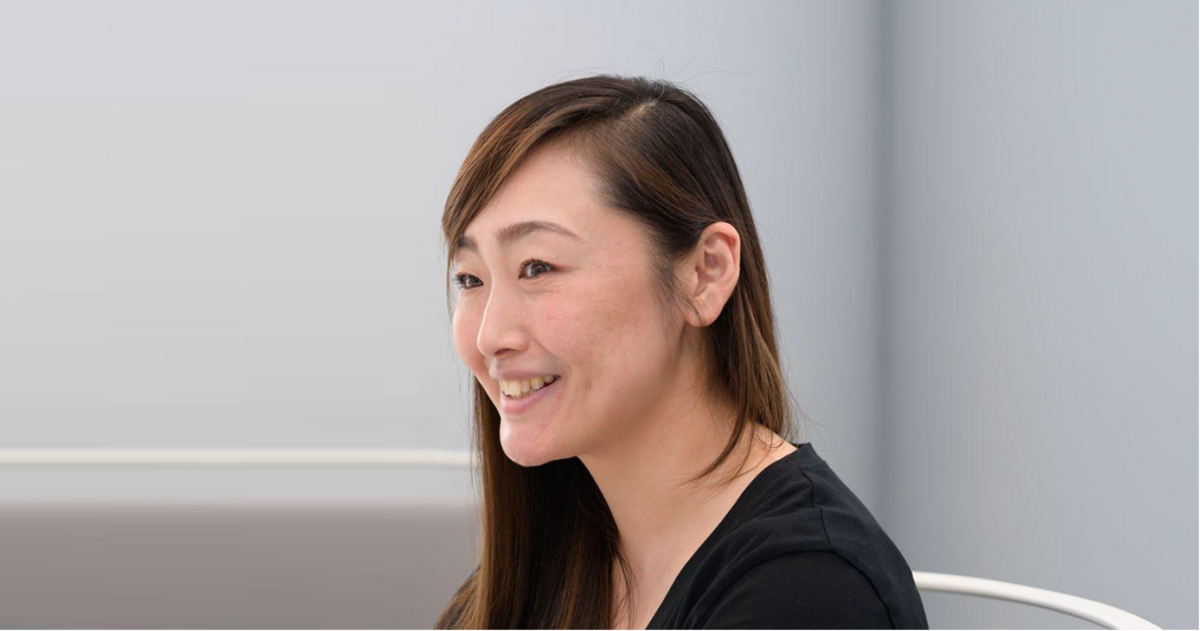
In June 2023, Mercari launched the Recommerce Institute. The mission of the Institute is to explore the impact of the recommerce market on society, the economy, daily living, and a variety of other viewpoints by researching trends related to recommerce markets in Japan and overseas. It also looks at market trends and changes in consumer behavior. The Institute highlights the role that the recommerce market plays in realizing a circular economy and conducts research to uncover new viewpoints in order to not only change the awareness and behavior of consumers, but also achieve Mercari’s Group mission of unleashing the potential in all people.
For this article, we talked with Akane Shiwa, a communication specialist in Mercari’s Recommerce Division who continues to share information from the Recommerce Institute.
--------------------------------------------------------------------------------------------------
Ai (Ai Sasaki, Mercari Public Policy): It’s been exactly a year since we established the Recommerce Institute. For the benefit of our readers, could you look back on the background and the objectives that led us to launch it?
Akane (Akane Shiwa, Recommerce Div. Communication Specialist): Roughly three or four years ago, we began to see a trend of mostly overseas apparel manufacturers buying back items from their customers and selling them as reusable items. Initiatives like these are trends that arose from a growing interest in sustainability and the circular economy. However, there are still very few cases of this in Japan, and there is no trade organization that compiles and shares data and knowledge related to recommerce. We therefore seized this opportunity to get ahead of the rising tide of recommerce guaranteed to hit Japan in the future. Since the expansion of reuse and secondary distribution is linked to Mercari, we decided to launch the Recommerce Institute with the idea of creating a forum for sharing information that would be useful not just to our company’s bottom line, but to all those thinking about getting into reuse and resales.
Ai: It’s true that Japan is not on par with other countries when it comes to the spread of recommerce. Since the creation of services like Mercari, reuse has really spread a lot compared to 10 or 20 years ago. However, despite this, only people who are interested in recommerce or know something about it are familiar with the concept. I feel like that is the reason why it hasn’t spread more here.
Akane: In Europe, sustainable consumer behaviors are on the rise as people fear that their way of life may be threatened by environmental problems in a matter of decades. In addition, governments have enacted laws and ordinances in order to push companies to limit manufacturing volumes and place restrictions on waste materials. The pressures of this business environment have led to a trend where companies reselling their own products has become a new business model. In Japan, we haven’t yet reached the point where we have a real sense that environmental issues are threatening our way of life.
Ai: The picture that you paint of a world where recommerce has been realized is still in an early stage, but I think there are some parts of this that are closer to the mark than others. However, the questions to ask are, how much closer can we get to achieving this world where recommerce is realized, and what is the next issue that we’ll have to deal with?
Akane: In 2019, a few years before we launched the Recommerce Institute, we established “Mercari Labs.” However, at the time of the launch, we received criticism from people in the primary distribution sector, who said that Mercari was just an alternative marketplace for buying new products, and that gave some a bad impression of our service. To research whether reusable items were really replacing new ones, we enlisted the help of experts in marketing, economics, and other such fields and asked them to investigate various data. The results of their investigations showed that primary distribution and secondary distribution complement each other, and we have continued to share this fact. Perhaps we can credit the process we had used, but this time when we exchanged ideas with various companies about collaboration with secondary distribution on the potential of recommerce, there were a lot of positive responses, and I had the sense that there has been a significant change.
Companies now see the popularity of their brand on secondary distribution as a sign that consumers value their brand. There are also brands that are curious to know the extent to which their brand is being handled on secondary distribution.
I can’t say there are a lot of manufacturers that want to build partnerships with secondary distribution channels, but there are those that have taken an interest, and this shows that we are about halfway there, which is a big change.
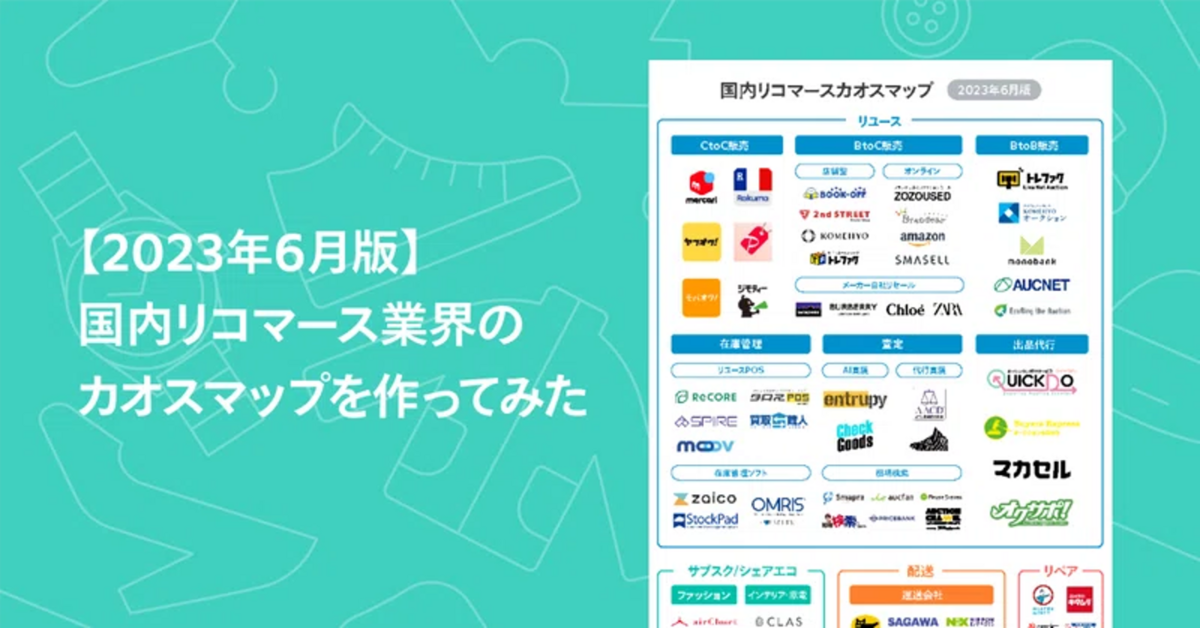
Ai: I think it would be good if a worldview could be created that turned secondary distribution channels into brands, including luxury brands. Bundling data together with the information that we share allows us to engage public opinion, but in doing so, I also get a sense of how important it is for the Recommerce Institute to share information like this.
Next, I’d like to ask you about an article on the Recommerce Institute. Around the time you launched the Recommerce Institute, there was an article published titled, “June 2023 Edition: Creating a Recommerce Field Industry Map for Japan.”
Personally, I thought the industry map article was really interesting.
Akane: We made this industry map because there is now a market for reuse, and there are also respective markets for the sharing economy, shared subscriptions, and even for transport. As each market develops, we want to present recommerce as a new industry by broadly grouping companies involved in all aspects of secondary distribution as recommerce players.
By compiling currently available and seemingly related elements like services, items, and knowledge as one, we want people to notice the scale of the market. Our hope is that this will link to companies wanting to concentrate even more on recommerce, even if it is not part of their future outlook. The goal is to prompt companies to envision and share a future centered around recommerce; this is why we wrote the article.
Ai: When I looked at the article, it was like reading a map that showed the links between each of the players. You’ve written a lot of other articles on this topic. Are there any others that you would like to mention here?
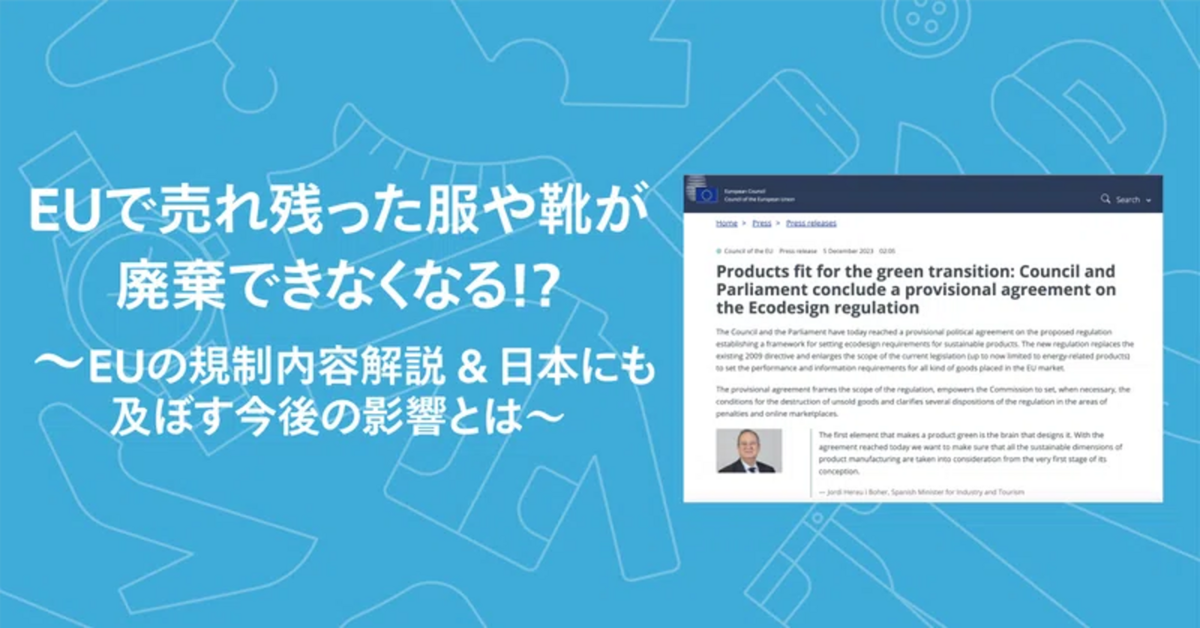
Akane: One article that was read by a surprisingly large number of people was titled, “Now Banned in the EU: Disposing of Unsold Clothing and Shoes—An Explanation of EU Regulations and the Future Consequences for Japan.”
This came out immediately after a news report related to EU regulations, making its publication timely during a period when there were few articles that broke down overseas laws and ordinances, and this told me that there was a need to share this sort of information.
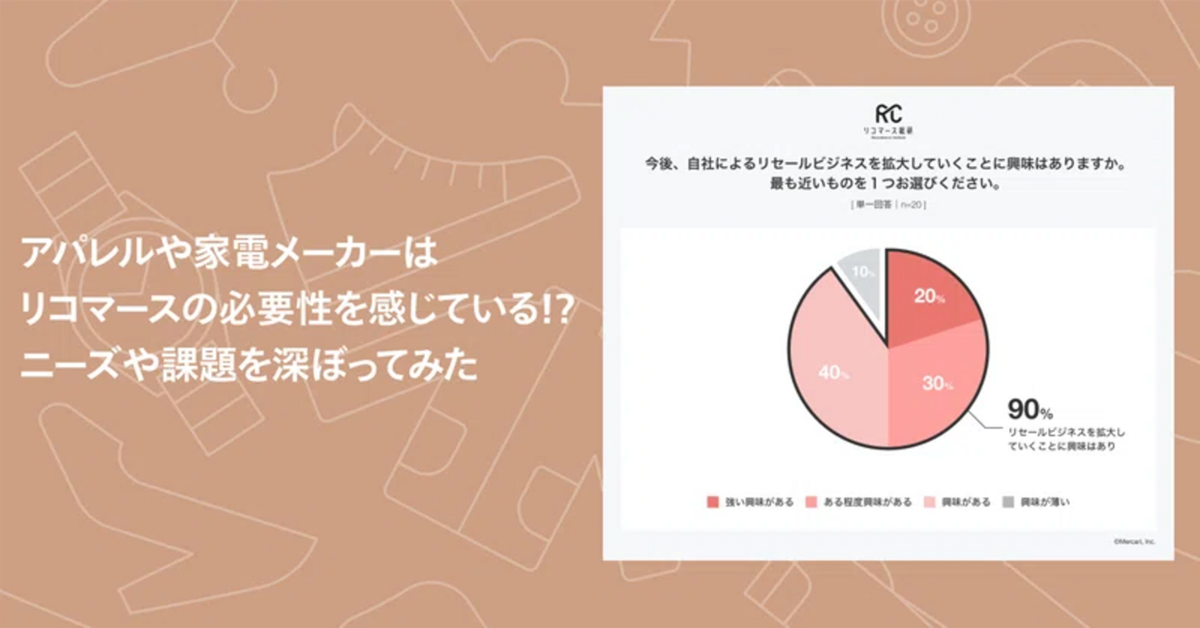
Do Apparel and Electronics Manufacturers Recognize Demand For Their Own Recommerce? A Deep-Dive On the Needs and Issues Involved.
Ai: I see. So, next could you tell us about the sorts of articles that you would like to see more people read?
Akane: I’d like more people to read the article, “Do Apparel and Electronics Manufacturers Recognize Demand For Their Own Recommerce? A Deep-Dive On the Needs and Issues Involved.”
Ai: What specific points would you like people to know about?
Akane: Companies have a need for item collection, but gathering inventory is a difficult process. One issue that I think a lot of companies are having trouble with is that they cannot come up with a way of operating that will yield financially rational results.
Major apparel manufacturers that place a box for collecting used items in their stores have another issue. Few of the clothing items that are put in these boxes are of resale quality. In addition, I’ve heard that the apparel manufacturers that collect and resell items at their own company would actually prefer to collect more items. This would allow them to step on the gas of their recommerce business, but the issue is that they can’t get enough items to do this. What all the companies had in common was that they were having a hard time gathering items. However, at Mercari, if you include the items that aren’t selling, we have a lot of inventory. If we could match manufacturers’ demand with our surplus, it could open a wider range of possibilities. I actually included that sentiment in the article as well.
Ai: If the things that companies want were visualized and it were possible to gather resale items on Mercari and ship them in batches, it would likely expand the potential of recommerce.
Akane: Definitely. Businesses like apparel companies and brand-name companies recognize the need to circulate clothing and are starting to see what issues are involved. However, I think it would be beneficial for us to show that there are solutions to some issues that remain unresolved. The item collection used to date has been done for ESG purposes as that was largely regarded as unavoidable for corporate branding. However, through recommerce, I’d like to establish a financially rational business model that reduces the burden on the environment.
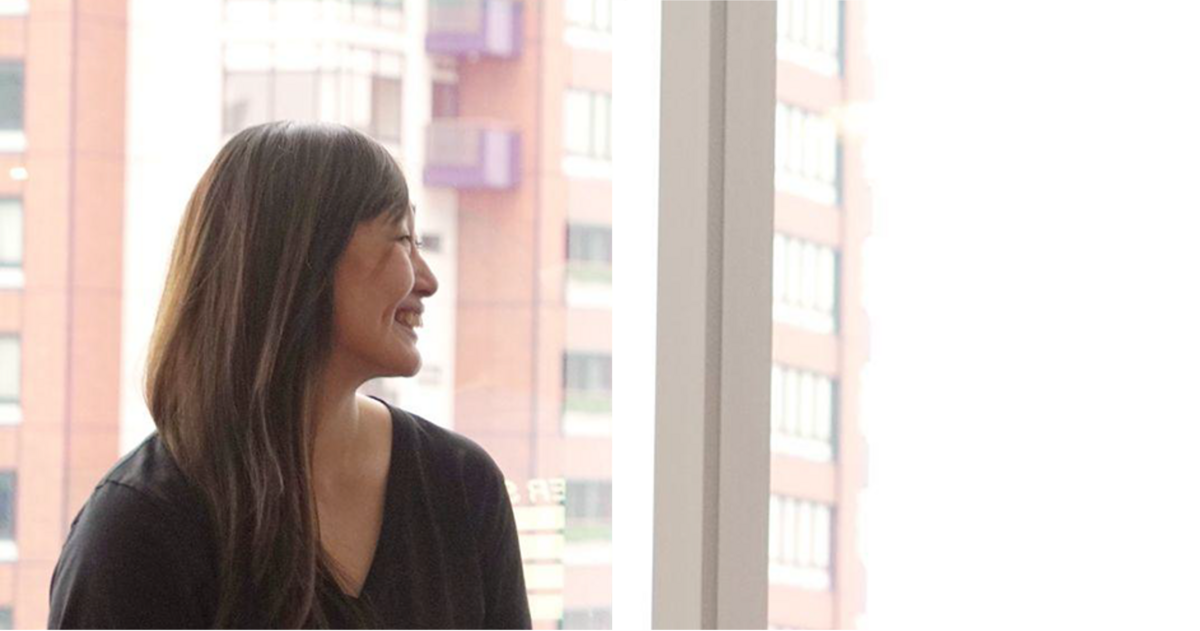
Ai: I understand that the members of the Recommerce Institute have spoken to a lot of different people. Have you picked up any hints for achieving the social change you want to achieve?
Akane: I had the impression that even though we all have different stances on recommerce, everyone seems to think along similar lines. For instance, we interviewed Editor /Fashion Creative Director Sayumi Gunji and circular economy researcher Akihiro Yasui (available here in Japanese), and then separately interviewed Shogo Tanaka, Director of the Resource Efficiency and Circular Economy Division of the Ministry of Economy, Trade and Industry (available here in Japanese). What the two interviews had in common was a point about success coming from starting small, operating on a small scale, and increasing the numbers over time.
What’s more, we saw commonalities in a number of recent interviews. These included our conversation with Professor Hikaru Yamamoto, an expert on secondary distribution consumer marketing and a member of Keio University's Faculty of Business and Commerce (available here in Japanese), and another interview featuring Mercari Director and President Fumiaki Koizumi and Arisa Kamada (available here in Japanese), a personality who shares information about the background of the fashion industry to broaden perspectives on sustainable fashion. She also works on initiatives to resolve issues related to sustainability through partnerships between the private and public sectors. There was a common thread in these conversations that made me think that the picture of what we have to do is becoming clearer: (1) It’s important to come up with the sort of design that consumers will get excited about; and (2) regardless of how much you educate people about something being eco-friendly, it won’t necessarily motivate them to act, so it’s important to create mechanisms and systems that will.
Ai: I see. So with all of this in mind, do you have a concrete vision of what you would like the Recommerce Institute to do going forward?
Akane: Having worked on the Recommerce Institute for a year, I feel like it’s now a touchpoint where we can talk with various and diverse specialists like Kamada, Professor Yamamoto, Tanaka, and Atsushi Segawa, the Editor in Chief of The Reuse Economic Journal. The connections that we’ve made through the Recommerce Institute have resulted in more than just news articles. We’ve also collaborated on a variety of content. In doing so we’ve gained knowledge regarding recommerce from a wide range of stakeholders, which we would like to see joined to the spread of recommerce.
In addition, the Recommerce Institute started when there were no companies, organizations, or media groups specializing in sharing information about recommerce, and so as recommerce gradually spreads through society, we hope more people think to refer to our data and for the Recommerce Institute to become like a think tank for recommerce.
Ai: In order for recommerce to spread, it will also be necessary to collaborate with parties like the national government as well as government ministries and agencies.
Akane: There are instances where entities like government ministries and agencies create structures and spread them to the population, but I think there are also instances where there is no way of knowing, at that phase, whether consumers will accept something. I think times like these are opportunities for the knowledge of private companies that have touchpoints with consumers to play a crucial role, and I also think that it’s important to create designs that make it easy for consumers to act.
For example, a policy like Cool Biz matches the needs of the population, and the practice of charging for plastic shopping bags creates a mechanism for spreading the use of reusable shopping bags instead of just educating people about how reusable shopping bags are eco-friendly. What’s more, in order to extend the government’s policies to the greater population, I think that coordination between the public and private sectors is crucial, like department stores that promote Cool Biz fashion, and design companies that create reusable shopping bags that are nice enough that people will want to carry them. For recommerce, I think it would be great if the Recommerce Institute and Mercari could take on the role of catalysts for collaboration between the public and private sectors.
I think it’s important to balance national policies with Japan’s national character. Instead of having rigid restrictions like they do in Europe, I think that designing mechanisms that encourage consumers to act on their own is better suited to Japan. Having the Japanese government support plans by providing subsidies might be a better way to proceed. Even people affiliated with the government have said after seeing information the Recommerce Institute has shared that they would like the public and private sectors to come together in promoting a circular economy.
--------------------------------------------------------------------------------------------------
Profile
Akane Shiwa
After graduating from university in 2008, Akane joined an agency for models from overseas. There, she worked as a manager and was involved in shooting commercials, dramas, and movies. In 2014, she entered the PR industry by joining Vector, Inc., and later moved to Platinum, Inc. She spent two years at Platinum as a promoter in charge of TV programs ranging from news shows such as WBS to “infotainment” shows such as Mezamashi TV. Later, she took the role of an account manager for two and a half years, working directly with clients to offer PR consulting and sales services. In February 2018, Akane joined the Public Relations Team at Mercari, mainly handling the PR for the Mercari marketplace app. The next year, in November 2019, she led the launch of Mercari Labs. Since October 2021, she has also worked concurrently as the manager of the Souzoh, Inc. PR Team. In April 2023, she assumed the roles of Communication Specialist and Chief Researcher at the Recommerce Research Institute with the launch of the Recommerce Division.In April 2023, she launched the Recommerce Division and took on the concurrent role of Communication Specialist and Chief Researcher of the Recommerce Institute.
Interviewer
Ai Sasaki
Ai works for the Public Policy Team at Mercari. Before joining Mercari in November 2018, she worked in a variety of roles including hotel staff, theme park stage manager, executive assistant for a member of the Japanese Diet’s ruling party, and health check clinic operator. In her current role, she is in charge of maintaining the rules for the handling of listed items and is also responsible for supporting her team’s internal work and for team building. Her hobbies include playing tennis, which she does three times a week, and oil painting.
Photography: Hiroshi Amano, Mercari Public Policy
